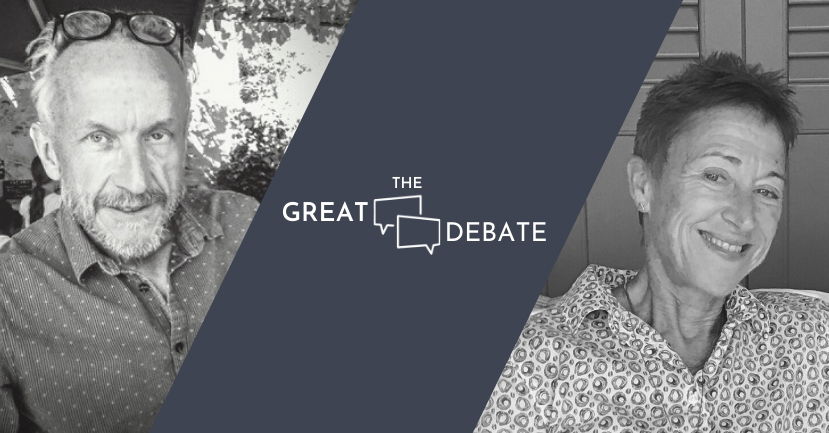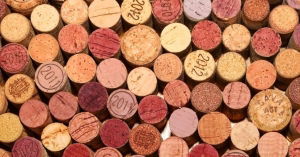BLOG
Wine Education & Careers
Pierre Freyermuth
Ripeness and Balance with Andrew Jefford and Julia Harding MW
KD: Let’s shift gears a bit. I can see how a consumer or new student of wine could easily confuse “moderate” or “medium” elements in a wine as “balance.” I know I struggled with that early on! But certainly a high-tannin or high-acidity wine, or a low-alcohol or high-alcohol wine, could still be...
Pierre Freyermuth
Ripeness and Balance with Andrew Jefford and Julia Harding MW
KD: The fulcrum analogy is a perfect visualization of it, Julia. Thank you. On to our last topic. As wine writers, we always get a front-row seat to the generational battle over ripeness, and in the age of climate change, that battle has become even more accentuated. I think of a recent trip to...
Pierre Freyermuth
Ripeness and Balance with Andrew Jefford and Julia Harding MW
KD: So much of this conversation — balance, freshness, alcohol content, etc. — stems from when the grapes are harvested. My question has to do with ripeness, because the ultimate outcome of a wine’s composition often stems from when and how the winemaker harvests the grapes. However, it means...
Pierre Freyermuth
Ripeness and Balance with Andrew Jefford and Julia Harding MW
KD: Andrew, how do you discern balance when you are tasting wines? Do you have any tips? How much of it is a feeling? AJ: The first thing to say here is that I strongly believe that the key to finding and understanding balance in a wine becomes apparent as you drink a wine, rather than when you...
Pierre Freyermuth
Ripeness and Balance with Andrew Jefford and Julia Harding MW
KD: You touched upon this a moment ago, Andrew, but currently, lower alcohol wines are in vogue within many circles of the wine industry, and among consumers. Within other circles, so-called “Parker” wines — a style predicated on boldness, richness and amplified tones — remain the driving force....
Pierre Freyermuth
Ripeness and Balance with Andrew Jefford and Julia Harding MW
KD: I want to get both of your opinions on this next question: the elements that help preserve wine long-term — for example, acidity, tannins, and alcohol — are also the ones we discuss in terms of balance. Wines that age well are always balanced, but not all balanced wines can age, correct?...
Kevin Day
Wine Education & Careers
Few, if any, moments in wine are more dramatic than when a producer decides it is time to pick fruit. Whether they rely upon a Brix reading, a visual cue from the grape seeds, or the finely tuned instrument of their own palate, making the call to harvest a plot of grapes is a decision fraught with...
Pierre Freyermuth
What is the Future of Appellations? with Andrew Jefford and Robert Joseph
KD: Hypothetically, what would the wine world look today if it weren’t for appellations? Would the concept of terroir even be a discussion point without them? And do appellations create unrealistic expectations about terroir? AJ: Terroir would exist as a concept because there would be a small set...
Pierre Freyermuth
What is the Future of Appellations? with Andrew Jefford and Robert Joseph
KD: Andrew noted that without appellations — specifically European ones — the “global wine offer” would be simpler and that wine would have to rely more on marketing strategies. Do you agree, Robert, and secondly, would that be a good thing for wine consumers? Would it be more accessible to more...
Pierre Freyermuth
What is the Future of Appellations? with Andrew Jefford and Robert Joseph
The Great Debate: What is the Future of Appellations? with Andrew Jefford and Robert Joseph KD: It would seem that with climate change, the notion of a wine region holding on to a rigid identity over the next several years or decades is borderline ridiculous. We need look no further than...
Pierre Freyermuth
What is the Future of Appellations? with Andrew Jefford and Robert Joseph
The Great Debate: What is the Future of Appellations? with Andrew Jefford and Robert Joseph KD: One final question..., are we moving toward a future of appellation irrelevance? Has “the everyday consumer” already made them irrelevant? AJ: Not at all. Remember, as I outlined earlier, that...
Pierre Freyermuth
What is the Future of Appellations? with Andrew Jefford and Robert Joseph
KD: Let’s shift gears and focus on what appellations have accomplished, and what role they might play in the preservation of wine heritage going forward. As an Italian wine fanatic, few things excite me more than geeking out over rare grape varieties that demonstrate something unique in the glass....
Pierre Freyermuth
What is the Future of Appellations? with Andrew Jefford and Robert Joseph
KD: Let’s move on. While the EU wine quality pyramid for appellations (i.e. PDO/PGI) is intended to have some semblance of a hierarchy, all three of us could cite dozens of examples of exceptional, rule-breaking wines made as “table wine” or with a broadly generic regional appellation. Andrew, is...
Pierre Freyermuth
What is the Future of Appellations? with Andrew Jefford and Robert Joseph
The Great Debate: What is the Future of Appellations? with Andrew Jefford and Robert Joseph KD: The original genesis of appellations was to place importance on “somewhereness,” but also to authenticate wine and guard against fraud. The desire for authentic wines and terroir has not gone away, and...
Pierre Freyermuth
What is the Future of Appellations? with Andrew Jefford and Robert Joseph
KD: The natural wine movement in particular has challenged many tenets that appellations have held dear, namely ‘what is typicity?’ We discussed some of this in our last debate where some appellations have defined their wines by a set of standards which excludes some natural wines. So, is...
Pierre Freyermuth
What is the Future of Appellations? with Andrew Jefford and Robert Joseph
KD: Let’s shift gears a bit. By their very construct, appellations are about controlling outcomes. Robert, do they control too much in the process of viticulture and winemaking? What should they control and what should they not control? RJ: The point of an appellation is to provide consumers with...
Pierre Freyermuth
What is the Future of Appellations? with Andrew Jefford and Robert Joseph
KD: Let’s go back to something Robert suggested earlier: Do appellations really constrict freedom and inhibit creativity? Even if they do, is that a bad thing? RJ: If producers are allowed to produce the wines they want alongside AOP wines (as they have been for some time in Italy, for example),...
Kevin Day
Wine Education & Careers
Few consumer products in the world are more steadfastly focused on origin than wine. Think of the last great bottle of wine you enjoyed and, odds are, its place of origin featured prominently on the label. Known as appellations, these defined areas of wine production have fostered a fanatical...
Lisa Airey
Wine Education & Careers
Every wine appellation in France has a cahier des charges, a set of regulations that delineates the production zone and specifies viticultural practices and production standards. In many instances, a single cahier des charges references one zone of production and multiple wine styles within it...
Pierre Freyermuth
Natural Wine feat. Andrew Jefford and Simon Woolf
KD: Separately, some natural wines have failed to qualify for their appellation status because they were deemed atypical of their region’s wines. Simon, what’s your opinion on the subject of typicity? Have regulators developed a taste for non-natural practices and allowed that to colour their...



